Recent Articles
Popular Makes
Body Types
2020 Lincoln Aviator Road Test and Review
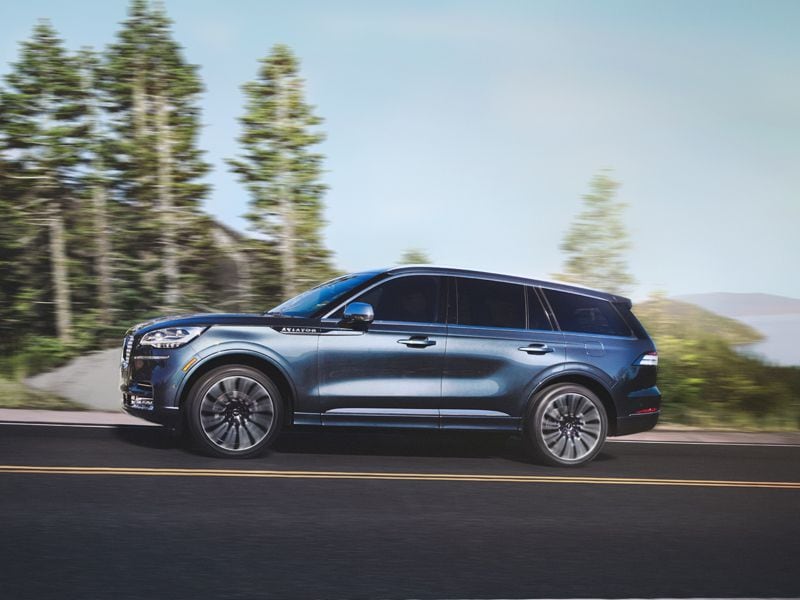
2020 Lincoln Aviator exterior profile ・ Photo by Lincoln
Think of a Lincoln, and chances are good you’re imagining a creased chrome barge with hidden headlights and a fake spare tire hump on the trunk lid. Indeed, Lincoln held on to those traditional design traits for too long, and its resistance to change nearly killed the proud American luxury brand.
Now, however, Lincoln is different, as evidenced by the new 2020 Aviator. This is a midsize, three-row, seven-passenger, luxury SUV equipped with standard rear-wheel drive or available all-wheel drive. It wears the latest Lincoln look — a successful mashup of Bentley and Range Rover cues — while retaining subtle Art Deco details inside and out. Taut and tailored in appearance, the Aviator also includes what has helped a resurgent Lincoln to reinvent itself: a long list of ownership benefits that help to make your life easier. And if you choose the top-of-the-line Black Label version, Lincoln intends to make you feel extra special with exclusive customer services and experiences.
Gas and Plug-In Hybrid
There are two different versions of the 2020 Aviator available. The standard model, equipped with a twin-turbocharged V6 engine, is sold in Standard ($51,100), Reserve ($56,190), and Black Label ($77,695) trim levels, plus a $1,095 destination charge. Also, note that all-wheel drive is an option with standard and Reserve trim. It is included with the Aviator Black Label.
The Aviator Grand Touring is a plug-in hybrid version of the SUV. It uses the same V6 engine, but adds a 75-kW electric motor-generator and a 13.6-kWh lithium-ion battery. It comes in Grand Touring ($68,800) and Black Label Grand Touring ($87,800) trim levels. Standard equipment levels are equivalent to the Aviator Reserve and Black Label, and Grand Tourings include all-wheel drive. We tested the Aviator Black Label with the standard gas-only powertrain.
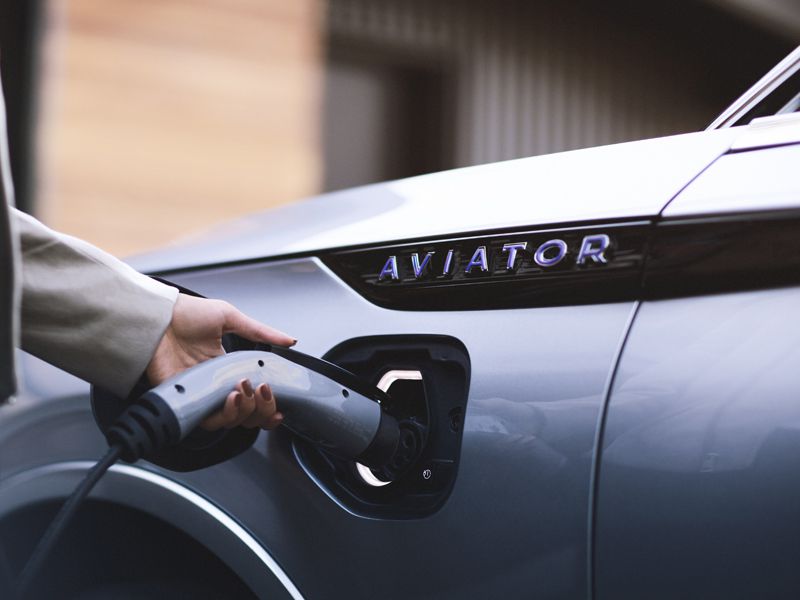
Photo by Lincoln
A Soothing Sanctuary
Open the Aviator Black Label’s door, and one of three themed interiors awaits to coddle you. My test vehicle had the Chalet theme, blending dark brown, off-white, gloss black, and shiny silver colors with rich perforated leather and a premium simulated suede headliner.
Thanks to 30-way power-adjustable, heated, ventilated, and massaging front seats, it is easy to get comfortable in the new Aviator. Generous storage means there is a place for everything, and Lincoln’s new Phone As A Key technology lets you enter and start the SUV using your smartphone. Second-row captain’s chairs are also heated and ventilated, and rear occupants get their own climate controls. The seats sit high off the floor, providing good thigh support. Slide them forward a bit to make enough room in the third-row seat for adults to join the fun — but only for minutes rather than hours at a time. Useful cargo space exists behind the third-row seat (18.3 cubic feet), but fold them to enjoy 41.8 cubic feet of volume. Maximum room measures 77.7 cubic feet.
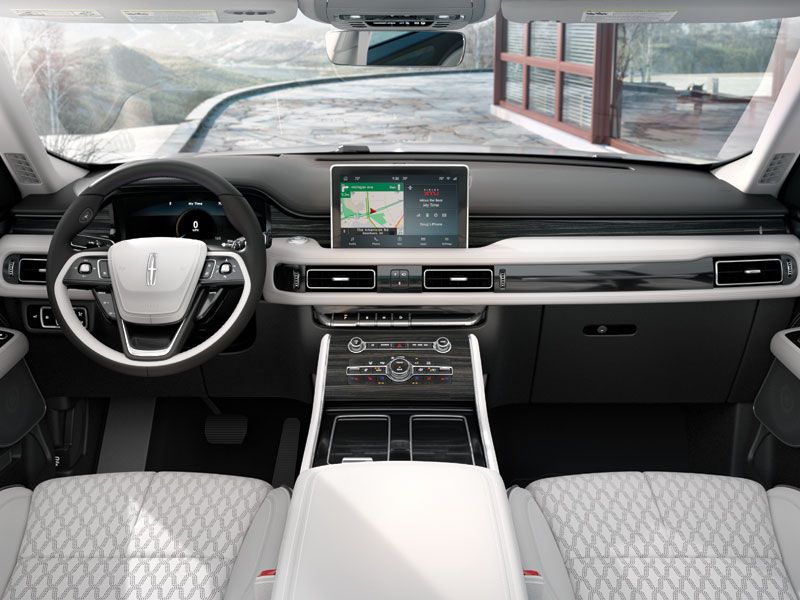
Photo by Lincoln
Useful Technology
In addition to Phone As A Key technology, the Lincoln Aviator offers a variety of helpful features. Highlights include a comprehensive head-up display that remains visible when the driver is wearing polarized sunglasses, a high-resolution reversing and top-down surround-view camera, and a 28-speaker Revel Ultima sound system sparkling with clarity.
Lincoln’s Sync 3 infotainment system is standard, presented via a 10.1-inch touchscreen display mounted on the dashboard. You can’t miss it. While equipped with the expected amenities such as Apple CarPlay, Android Auto, a 4G LTE Wi-Fi hotspot, and more, the system’s loading speed and response time occasionally leave something to be desired. The voice recognition system isn’t as natural or accurate to use as modern voice assistants, either. Meanwhile, if you hate parking, you’ll love this Lincoln’s Active Park Assist Plus technology. It takes over completely, steering, braking, accelerating, and changing gears to pull the Aviator in and out of parking spaces.
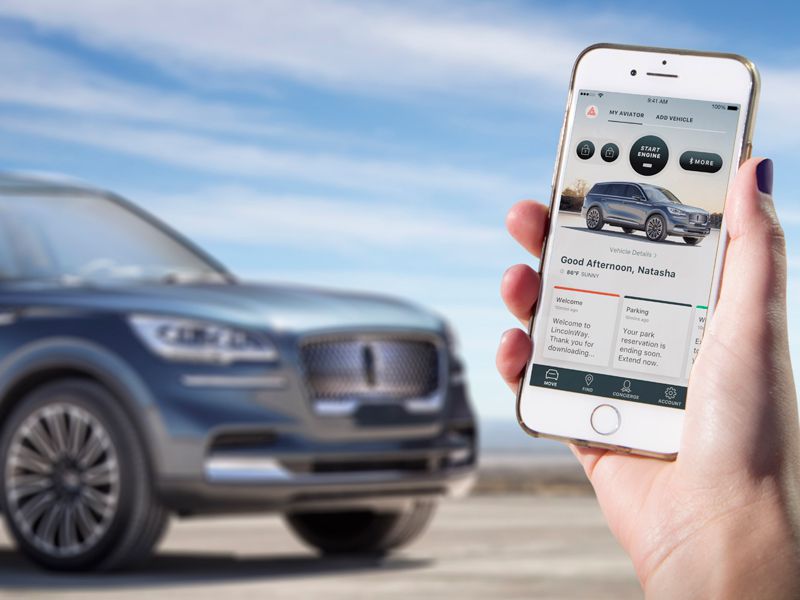
Photo by Lincoln
Refined Driving Assistance Systems
Lincoln’s latest slate of driver assistance and collision-avoidance systems, called Lincoln Co-Pilot360 Plus, works quite well. During a long slog down California’s Interstate 5, the adaptive cruise control was a model of accuracy and refinement, with the lane centering assist not far behind.
However, on a couple of occasions, the lane centering system insisted that I place my hands back on the steering wheel even though I was holding the rim. One time, the Aviator even began slowing down until I gripped the wheel harder. That’s what the technology is designed to do. After about 45 seconds of no-hands driving, the system assumes you’ve fallen asleep or you’ve suffered a medical emergency, and it will bring the Aviator to a stop. It will not, however, activate the hazard flashers or initiate a 911 Assist call. Evasive Steering Assist is also along for the ride. On the freeway running through Livermore, I needed it as I made a small, sudden steering input to avoid metal framework sitting in the right part of my lane. The Aviator reacted sharply, but with exceptional stability, allowing me to miss the debris.
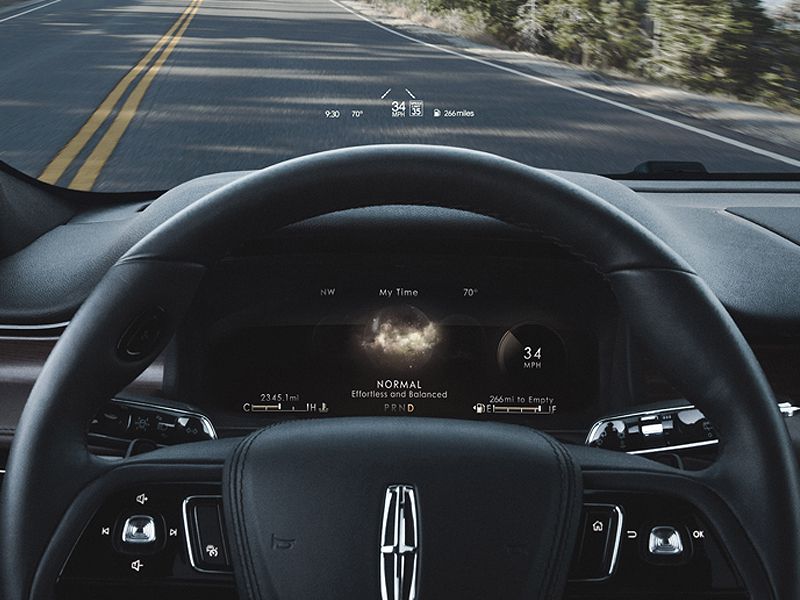
Photo by Lincoln
Hardware That Hustles
Equipped with a twin-turbocharged 3.0-liter V6 engine, the Aviator makes 400 horsepower and 415 lb-ft of torque. A 10-speed automatic transmission sends this power to the SUV’s rear wheels unless you’ve chosen the all-wheel drive system. Fuel economy estimates are 21 mpg in combined driving with rear-drive, and 20 mpg with AWD. The Aviator’s base curb weight is 4,774 pounds, and this is plenty of power to motivate that mass.
Due to its electric motor-generator and battery pack, Grand Touring models weigh almost 900 pounds more. Fortunately, in combination with the twin-turbocharged V6, this plug-in hybrid powertrain makes 494 hp and 630 lb-ft of torque. Lincoln says the Aviator Grand Touring will travel an estimated 18 miles on a full battery charge, and will get an estimated 23 mpg in combined driving. Over nearly 700 miles of driving, with more than half of those miles on the highway, the Aviator Black Label averaged 19.4 mpg, coming close to the 20-mpg estimate.
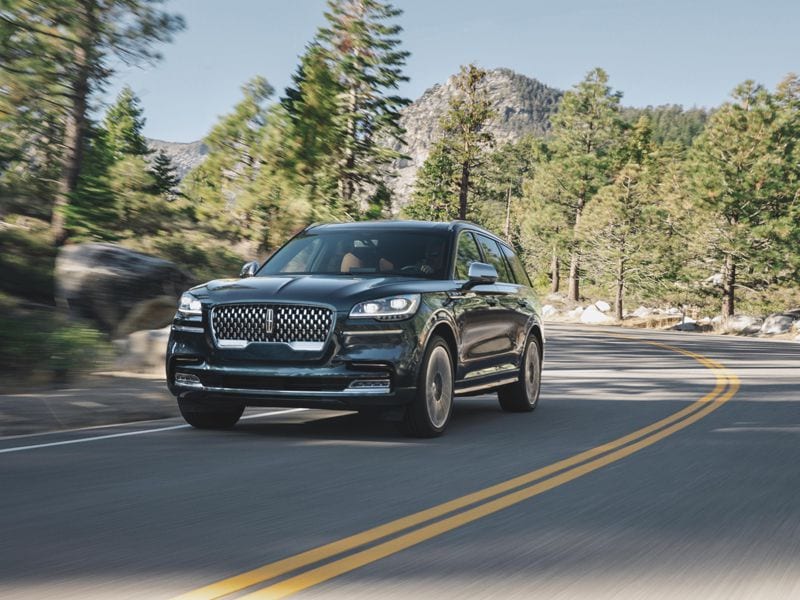
Photo by Lincoln
A Speedy SUV
Acceleration is not a problem for the Aviator Black Label. While the automatic engine stop/start system’s re-engagement is evident, this SUV surges forward with authority, emitting a pleasant and faint rumble accompanied by enough speed to push you back into your seat. Better yet, in spite of its 10 different ratios, the automatic transmission never seems confused about what it should be doing at a given time.
There is a definite difference between the vehicle’s Conserve, Normal, and Excite driving modes. The Aviator is a big sluggish in Conserve mode, like a vehicular Gudetama. In Normal mode, the Aviator automatically attempts to match your driving style, and is almost always successful. In Excite mode, the Aviator reminds me of a 9-month-old Lab that just slurped up a spilled nitro cold brew. It’s a bit frenetic, but in a good way. The Grand Touring hybrid versions add Pure EV and Preserve EV modes to the menu.
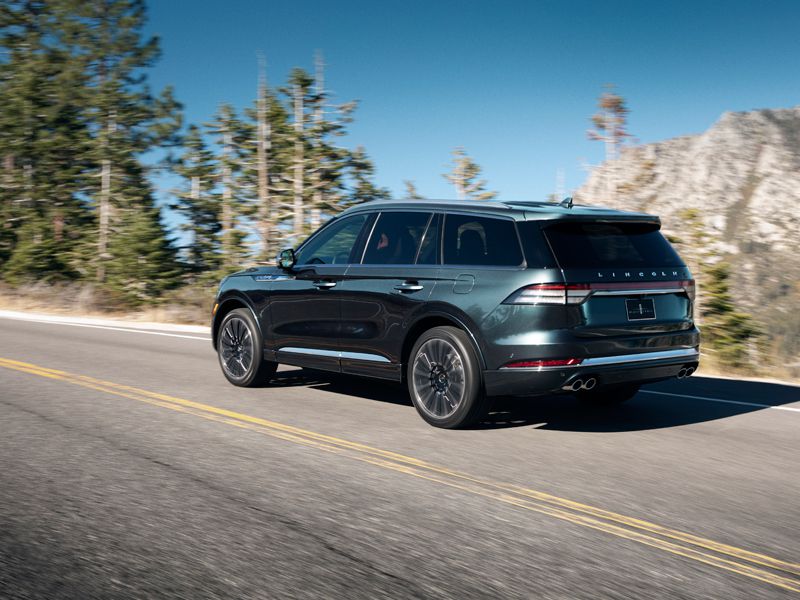
Photo by Lincoln
Grip and Glide
Any vehicle with 22-inch wheels and 275/40 tires is going to transmit detail about the road surface to the cabin, and that’s true of the Aviator Black Label — in spite of its Air Glide adaptive suspension, which is bundled with larger wheels and more responsive active steering in the vehicle’s Dynamic Handling Package. However, impact harshness is mostly subdued, and this version of the Aviator flattens speed humps, drainage dips, and driveway aprons like they don’t exist.
Similarly, any vehicle with 22-inch wheels and 275/40 tires is going to grip the road well, and that’s true of the Aviator Black Label, especially once you factor in Air Glide. Excessive body motions simply don’t exist, and this twin-turbocharged luxury SUV can fly down a mountain road carrying considerable speed. Better yet, it’s actually fun to drive, demonstrating finesse uncommon in the class. If there’s a way Lincoln could improve the Aviator’s ride and handling, it would be to reduce the amount of road noise that makes its way into the cabin. It harshes the vibe, man.
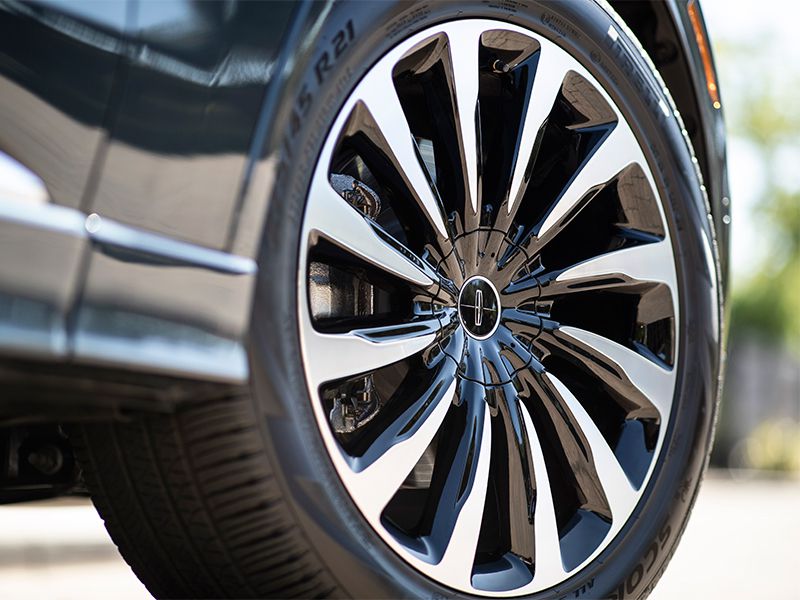
Photo by Lincoln
Wading Into the Fray
Where just a handful of choices existed just a few years ago, the midsize, three-row, luxury SUV segment has exploded with new and redesigned choices. Audi recently reworked its Q7, BMW debuted the X7, and Mercedes-Benz redesigned the GLS-Class. Other recent and new entrants include a seven-passenger version of the Lexus RX and the 2020 Cadillac XT6. And the Acura MDX, the traditional best-seller in the class, is about to get a complete redesign.
Lincoln gets into the game with a credible product. Prices can rise fast, though, and while the Aviator Black Label is undeniably plush, comfortable, and luxurious, the illuminated star logo embedded into its intricate grille still can’t match some brands in terms of cachet.
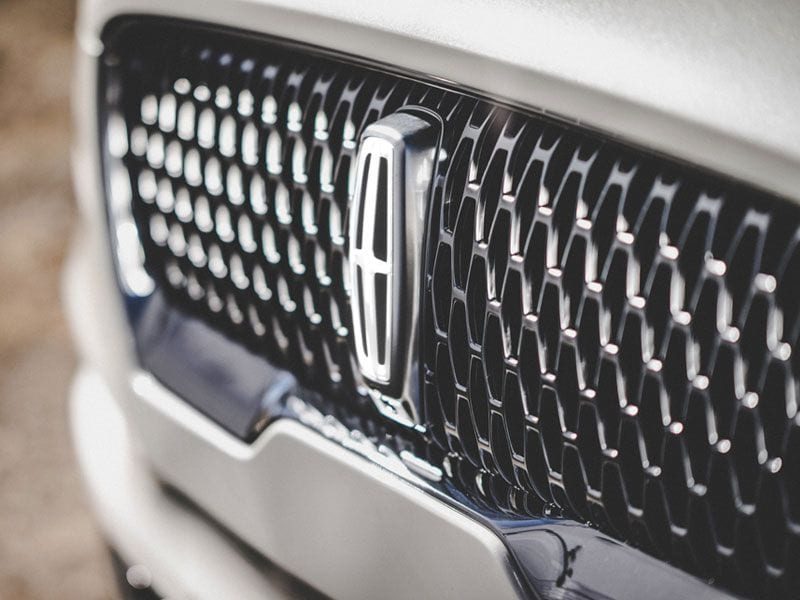
Photo by Lincoln
Lincoln Lets No Moss Gather
Lincoln designs its products to what it calls a “Quiet Flight” philosophy, aiming to deliver an effortless driving and ownership experience for its customers. For the most part, the new 2020 Aviator delivers on the promise. It is significantly more stylish and refined than the Ford Explorer on which it is based, and strikes me as more sophisticated than most of its competition.
Of course, Lincoln can’t sit still and expect to continue its renaissance, and the company’s spokespeople appear to understand that. That suggests that the Aviator, and the equally impressive Navigator before it, is just the start of better vehicles to come.
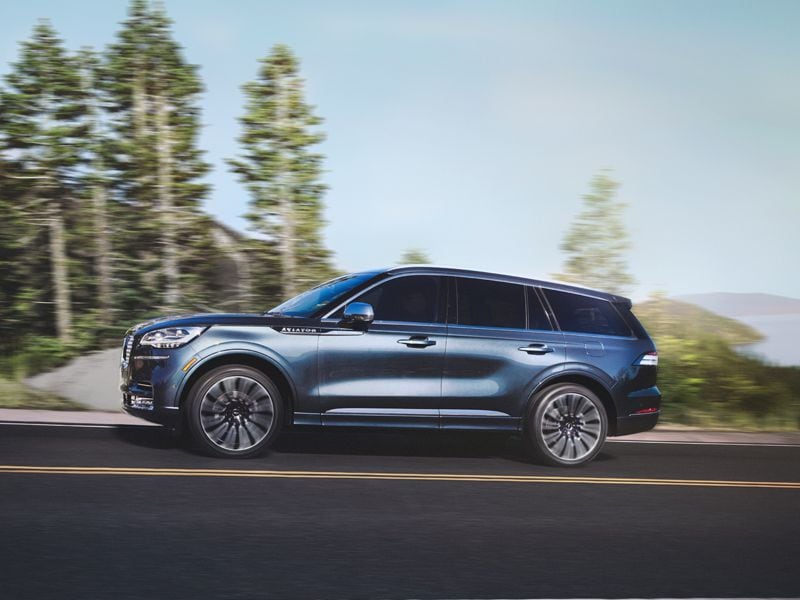
Photo by Lincoln